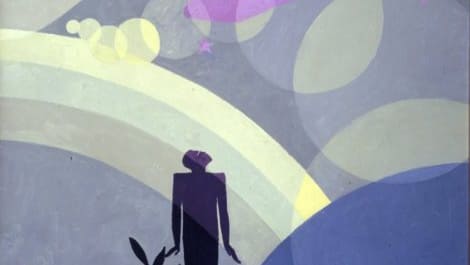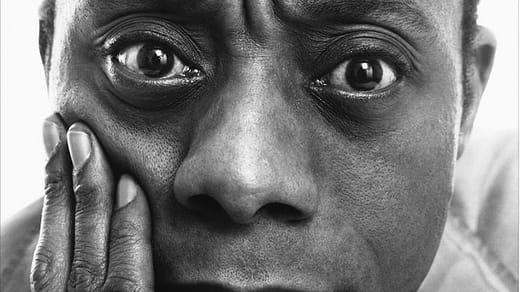“Religion is belief in someone else’s experience, Spirituality is having your own experience.”
– Deepak Chopra
It was recently that I’ve been able to say publicly that I have a lot of problems with “organized religion”. The dogma, the hierarchy, the rules, and how it has oppressed people of color for centuries, not to mention gender. In short, I was never a fan of religion. The rituals of religious service were always another story. Maybe it was the theatrics of it. The call and response rituals of a baptist church reminded me of African chants, I love it. The singing of the choir were voices of angels praising God. The overall narrative of the bible I thought (and still believe) is so beautiful.
If I am honest, I believe in God because my mother believed in him. She believed making her children go to church service, fellowship with other believers, and thanking God for everything we had. As a single mother, the things she was able to do and what gave her strength was her belief system. I marveled at how she can quote biblical scripture and apply it to her life and the lives of others. Seeing God in her eyes and words and I became a believer.
I also experienced what I would call the organizational part of the church. The titles man has given himself which I think has very little to do with God but with greed. The idea that only certain people can speak to or for God. The idea that certain people have “the gift” to communicate with God, therefore a congregation has to “worshipped” under them. There wasn’t God in any of the things I saw and felt in some of these places of worship. Ironically, I found God in places outside of the church.
I’ve found God in the people I met day by day in my travels, from all walks of life. Various cultures and classes of people, their stories, and rituals. In my students, who share their dreams and nightmares with me on a daily basis. In my family, through various acts of love and giving that are sometimes beyond the words, I can write. God is everywhere and everything I see and experience, it is an art to me.
Baha’u’llah, the founder of the Baha’i Faith, says “the essence of faith is the fewness of words and the abundance of deeds.” When I see acts of spirituality I see humanity recognizing itself. It reminds me that we are all connected and responsible for each other as well as the planet we inhabit. Especially now when a global pandemic has us “socially distance” but hopefully is bring us “morally close” to each other. I’ve witnessed people being of service to their fellow man out of the goodness of their hearts, doing deeds. That’s faith, not words but actions.
My mother says, “I know there is a God and I’m not him.” I talk to him every morning and evening. I’m praising him one minute and ranting on about something the next. I know I’m being heard whether I’m praying or just thinking out loud. I’ve always worn an Ankh, an Egyptian symbol for life, as a daily reminder of the gift of life. A lot of my creativity comes out of this spirituality and the questions I have about life. Things that I explore in my writing.





Wow. So much to discuss, but I’ll focus on the part that immediately stood out to me in two ways: When you said you saw God in/through your mother’s eyes and words but struggled with God re: the church. I feel like this is a universal struggle, something all members of organized religion all personally struggle with at some point of their spiritual journey.
1) I love that I came across this blog post now, after having so recently discovered a quote from the Bible that is living in my head, rent-free (as a Muslim woman I can admit these are few and far-between haha). I believe it was King David(?) who said to his brother “I have found grace in thine eyes”. I may not know the full quote, or even the context, but that bit just as it is…. wow, just wow.
2) This one will require quite some explaining and introduction just to *attempt* adequately explaining the nuance of my point. Consider yourself warned:
Your struggle instantly transported me to the qawallis (Sufi-style Islamic devotional singing) I grew up listening to, back when my oldest sister was in her version of a “vintage/80s phase”. (Qawallis are performed by a group of men sitting in a semi-circle, background-singing and clapping around an instrument while the lead singer uses extensive vocabulary in the already-intricate language Urdu to improv out his emotions. Qawallis can be quite intense and quite long, ranging from 15 minutes to even an hour.)
As a kid the “hard words” and their meanings all flew over my head, but one qawalli that always stood out to me was “Tum Ek Gorakh Dhanda Ho (You are a baffling puzzle/riddle)” by the late Ustad Nusrat Fateh Ali Khan. First and foremost, it is a complaint to/against God. In this intense piece Ustad lays forth his gripes with God, while also admitting his sincere wonder, citing Islamic stories from the Quran and personal findings as evidence for both. The words are poetic, yet so clearly a raw inner monologue— the frustration and simultaneous awe Ustad once felt when it came to God, both as a general concept and also key role played in Islam. Both a 30-min praise and complaint, the line between each piece blurred. Within his list of struggles struggles Ustad includes where he does/doesn’t “see God”. (NOTE: Islamically this is something which would otherwise I suppose have been considered taboo, who are we to critique God, etc. …but there is a reason this piece is so well-known and beloved by even the most “devout” Muslims. Ustad clearly did not intend disrespect, he just wished to UNDERSTAND. This wish is simply too personal yet universal to be ignored, as you yourself proved later through your sentence “I’m praising him one minute and ranting on about something the next”)
ANYWAY, the part from Tum Ek Gorakh Dhanda Ho that you reminded me of is:
“tujhe dair-o-haram mein maine dhundha, tu nahin milta
magar tashreef farma tujhko apne dil mein dekha hai”
which roughly translates to:
“I looked, searched for you in temples and mosques but I could not find you
But I found you residing in my heart”
Ustad brings up houses of worship many times throughout his qawalli, mostly to highlight this very point. He did not find God where one “ought to” but in the small things all around him. In the strength of his emotions. In his heart.
I guess what I’m trying to say is that I think you see God in your heart too, TSM– your students and family and art and expression of love and appreciation of cultures/traditions/people being clear extensions of that very organ.
God! pardon the pun, this is beautiful! You make me want to hear this for myself..and I will via YouTube, if it is available. You should write more about this experience it is singularly beautiful and universal at the same time.